Pet's Friend Animal Clinic

Services
General Wellness

Diet & Nutrition
Proper diet and nutrition can help your pet fight against disease, maintain a proper weight, and promote the overall well-being of your pet.
Learn More
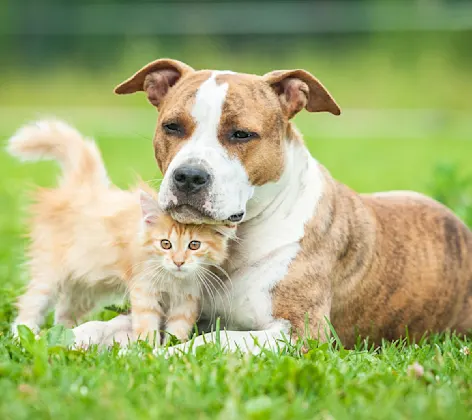
Wellness & Preventive Care
Annual wellness exams evaluate your pets overall health, detect problems before they become serious, and keep them on track to live a long, healthy life.
Learn More
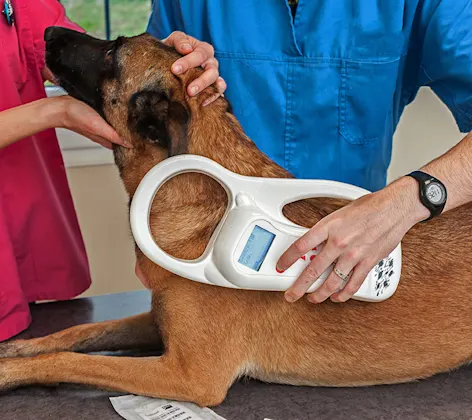
Microchipping
Microchip identification is the most reliable way to reunite lost pets with their owners.
Learn More
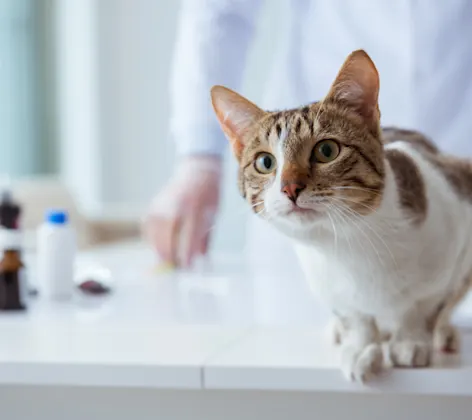
Heartworm Disease & Prevention
Heartworms are parasites of dogs and other canine species, such as foxes. Cats can also be affected, although they are more resistant to infection. Very rarely, a few cases have also been reported in people. Heartworms are transmitted by mosquitoes. Once limited to the southern regions of the United States, heartworms are now found in most areas of the United States, and are well-recognized in many other regions of the world.
Learn More
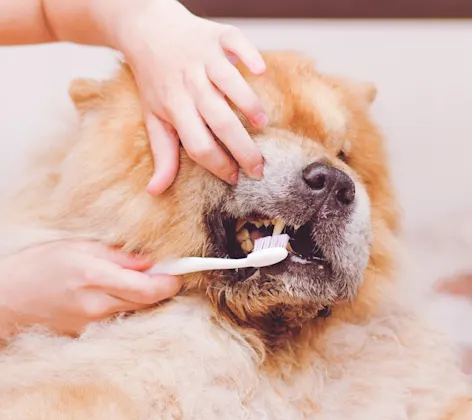
Pet Dental Health
After eating a meal, it only takes 6 hours for plaque to start developing and covering the tooth’s surface. Plaque eventually turns to calculus which is harder to remove and can cause bacterial infections in the mouth. This bacteria may spread through the bloodstream to the liver, kidneys, heart, and brain. Dental disease is seen in over 90% of the patients we see and regular brushing/cleaning is the key to preventing periodontal disease, oral pain tooth loss, oral odors, and systemic disease. If you notice your pet has stinky breath, discolored or dirty teeth, or is having any trouble eating, a thorough oral exam should be done by your veterinarian.
Learn More

Giardia Parasite Infection Treatment
Giardia is a single-celled parasite that can infect your dog or cat’s intestines. Animals can contract Giardia at any age but are most susceptible when they are young or immunosuppressed. Giardia is contracted via fecal-oral transmission, meaning that water or other substances contaminated with feces are swallowed. The most common route of transmission is ingestion of contaminated water, so Giardia can be more easily spread in environments that remain wet or that are populated with wild animals.
Learn More
Adult Dogs

Flea & Tick Prevention
Unfortunately, fleas and ticks do not go on vacation in the Bay Area and, even in harsh weather conditions, they can still be a year-round nuisance. Even indoor-only pets can get fleas and have an outbreak! Happily, the days of flea dips and harsh shampoos are behind us, as we now have a variety of safe, effective products to control fleas. Keeping fleas and ticks off your pet not only keeps them more comfortable, but also prevents transmission of several diseases carried by these itchy and disgusting little parasites. Below is a summary of some of the products we carry and highly recommend at Pet’s Friend Animal Clinic.
Learn More
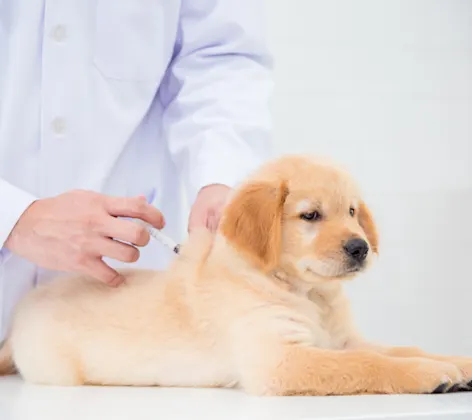
Canine Vaccines
Preventative care is an important aspect in maintaining your dog's health. Proper vaccination is vital in protecting them against harmful diseases.
Learn More

Dog Obesity
What’s the harm in a few extra pounds? A ton...Excess weight on your pet can cause chronic health problems, including diabetes, arthritis, and kidney disease—and a 15% shorter life span! More than half of all dogs and cats in the United States are overweight or obese.
Learn More

Anal Glands Expression
Anal glands, or sacs, are located under the skin at approximately 4’o clock and 8 ‘o clock positions in relation to the anus of cats and dogs. They normally excrete a putrid substance, as stool is passed, for marking and communication purposes. Sometimes animals will also inadvertently express them when they are stressed. The smell is often described as rancid, fishy, or metallic.
Learn More
Adult Cats
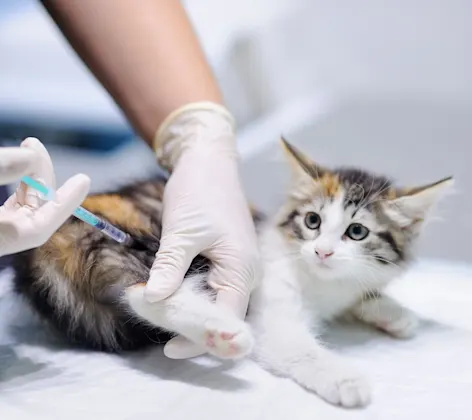
Feline Vaccines
Preventative care is an important aspect in maintaining your cat’s health. Proper vaccination is vital in protecting them against harmful diseases.
Learn More
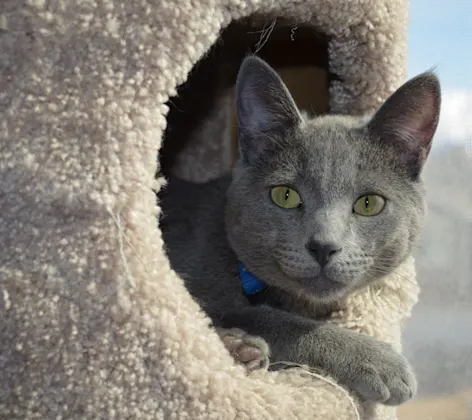
Flea Prevention
Unfortunately, fleas do not go on vacation in the Bay Area and, even in harsh weather conditions, can still be a year-round nuisance. Even indoor-only pets can get fleas and have an outbreak! Happily, the days of flea dips and harsh shampoos are behind us, as we now have a variety of safe, effective products to control fleas. Keeping fleas off your pet not only keeps them more comfortable, but also prevents transmission of several diseases carried by these itchy and disgusting little parasites. Below is a summary of some of the products we carry and highly recommend at Pet’s Friend Animal Clinic.
Learn More

Cat Obesity
What’s the harm in a few extra pounds? A ton...Excess weight on your pet can cause chronic health problems, including diabetes, arthritis, and kidney disease—and a 15% shorter life span! More than half of all dogs and cats in the United States are overweight or obese. On average, it has been shown that dogs that are lean live about 2 years longer than dogs who are overweight and we believe the same for all pets in general.
Learn More
Diagnostic Services
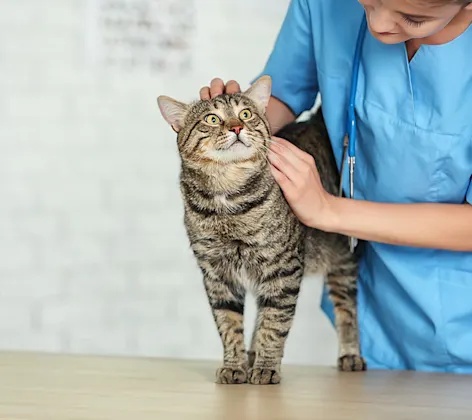
Radiography
We’re equipped to perform routine radiography services to identify many types of illness or injury when pets are sick or suffer a trauma.
Learn More

Diagnostic Ultrasounds
An ultrasound is a highly useful tool when evaluating heart conditions, internal organs, cysts and tumors.
Learn More
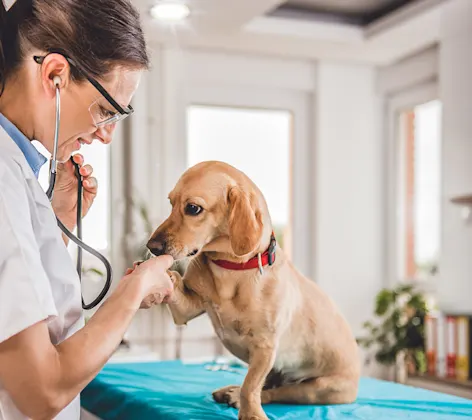
EKG
We use electrocardiography to measure and evaluate the electrical activity of the heart to diagnose potential heart conditions your pet may suffer from.
Learn More
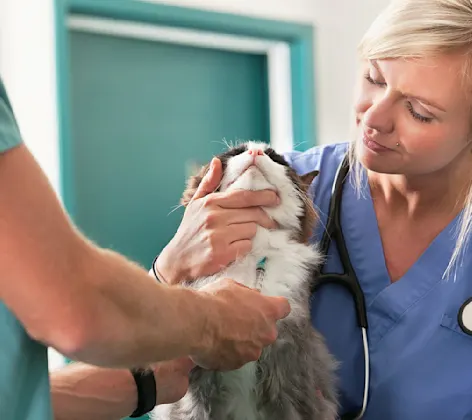
Laboratory Services
Diagnostic testing can identify problems your pet may be experiencing so that proper treatment can begin before a condition worsens.
Learn More

Allergies
Allergies can make life uncomfortable for your pet. Protect them from irritation with proper testing and treatment to relieve any symptoms.
Learn More
Surgery Services

Soft Tissue Surgery
We perform soft tissue surgery for a number of medical reasons. This common surgery can be used for most anything non-joint or bone related.
Learn More
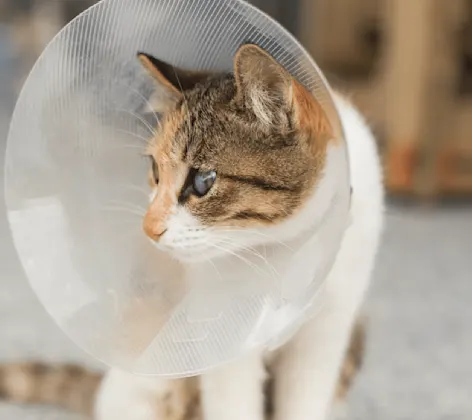
Spay & Neuter
Spaying and neutering are safe and effective procedures. These procedures not only help to reduce pet overpopulation, but a spayed/neutered pet is less likely to roam or run away to look for a mate, and the health benefits are significant. Approximately 6 million animals are euthanized at shelters each year, due to the sheer fact that there are not enough willing adopters. Having your pet spayed or neutered ensures that you will not be adding to this tremendous burden.
Learn More
Travel Certificates

Domestic Health Certificates
Are you traveling domestically within the USA? As a federally accredited veterinarian practice, we can issue travel certificates for your healthy pet so they can travel with you.
Learn More

International Health Certificates
Going out of the country? As a federally accredited veterinarian practice, we can issue travel and acclimation certificates for your healthy pet so they can travel internationally with you.
Learn More
End of Life Care

Euthanasia
Euthanizing a pet is not an easy decision. We are here to discuss options and assist in every way we can during this difficult time.
Learn More

Cremation
There are a number of wonderful ways to memorialize your beloved pet. Cremation can be a lovely way to honor and celebrate their lives.
Learn More

Burial Services
There are a number of wonderful ways to memorialize your beloved animal companion. Burial can be a lovely way to honor and celebrate their life.
Learn More
Accreditations & Certifications
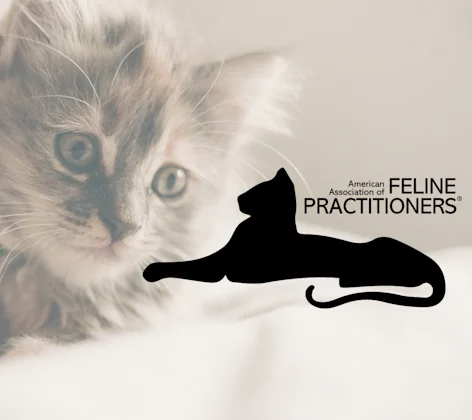
American Association of Feline Practitioners (AAFP)
The American Association of Feline Practitioners (AAFP) is instrumental in advancing feline veterinary care through their publications of Practice Guidelines, Position Statements, and other educational resources.
Learn More
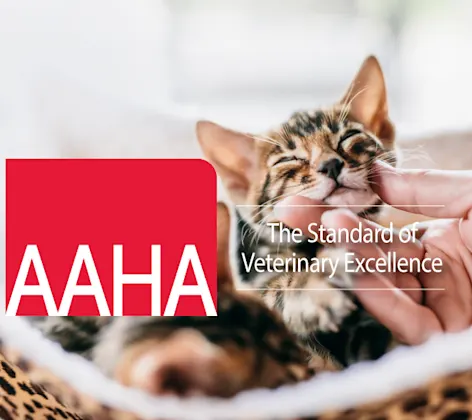
American Animal Hospital Association (AAHA)
The American Animal Hospital Association (AAHA) is the only accrediting organization for companion animal veterinary hospitals in the United States and Canada.
Learn More
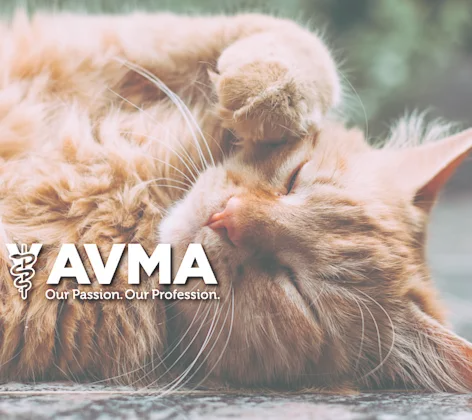
American Veterinary Medical Association (AVMA)
The American Veterinary Medical Association (AVMA) is the leading, and most collective voice of the veterinary profession.
Learn More
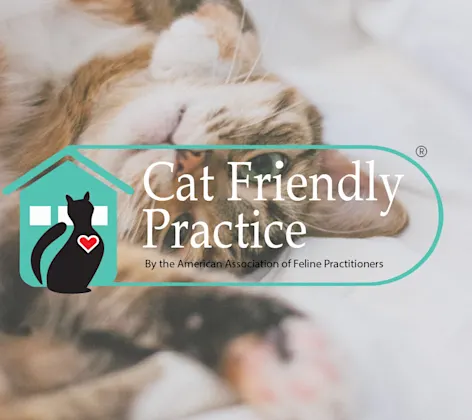
Cat Friendly
The Cat Friendly Practice program is awarded through the American Association of Feline Practitioners, and is a global initiative intended to advance the care for cats by reducing stress and making practice visits more calm and enjoyable.
Learn More

Veterinary Hospital Managers Association (VHMA)
“The mission of the Veterinary Hospital Managers Association (VHMA) is to enhance and serve professionals in veterinary management through superior education, certification, and networking” –VHMA.
Learn More
Patient Center
Here you'll find everything you need about Pet's Friend Animal Clinic and how we can help you. We have online forms for everything related to our Sunnyvale veterinarian clinic, and information, including a virtual office tour and what to expect in your visit.

What to Expect
When you are looking for a veterinary care clinic you should be able to count on superior care and excellent service. We at Pet's Friend Animal Clinic in Sunnyvale CA have assembled an expert team of veterinary professionals to bring you the best possible healthcare for your pet. We have a state of the art veterinary facility that is clean, comfortable, and efficient. Call 408-739-2688 to schedule an appointment and we will find a time that is convenient for you.
Learn More

Veterinary Resources
Pet's Friend Animal Clinic is aware of the vast amount of information available on the internet. Our team has taken the time and evaluated the following sites. We trust the information the listed websites provide to you, our client, and member of our family.
Learn More

Payment Options
We offer a variety of payment options to make caring for your pet as accommodating as possible.
Learn More
